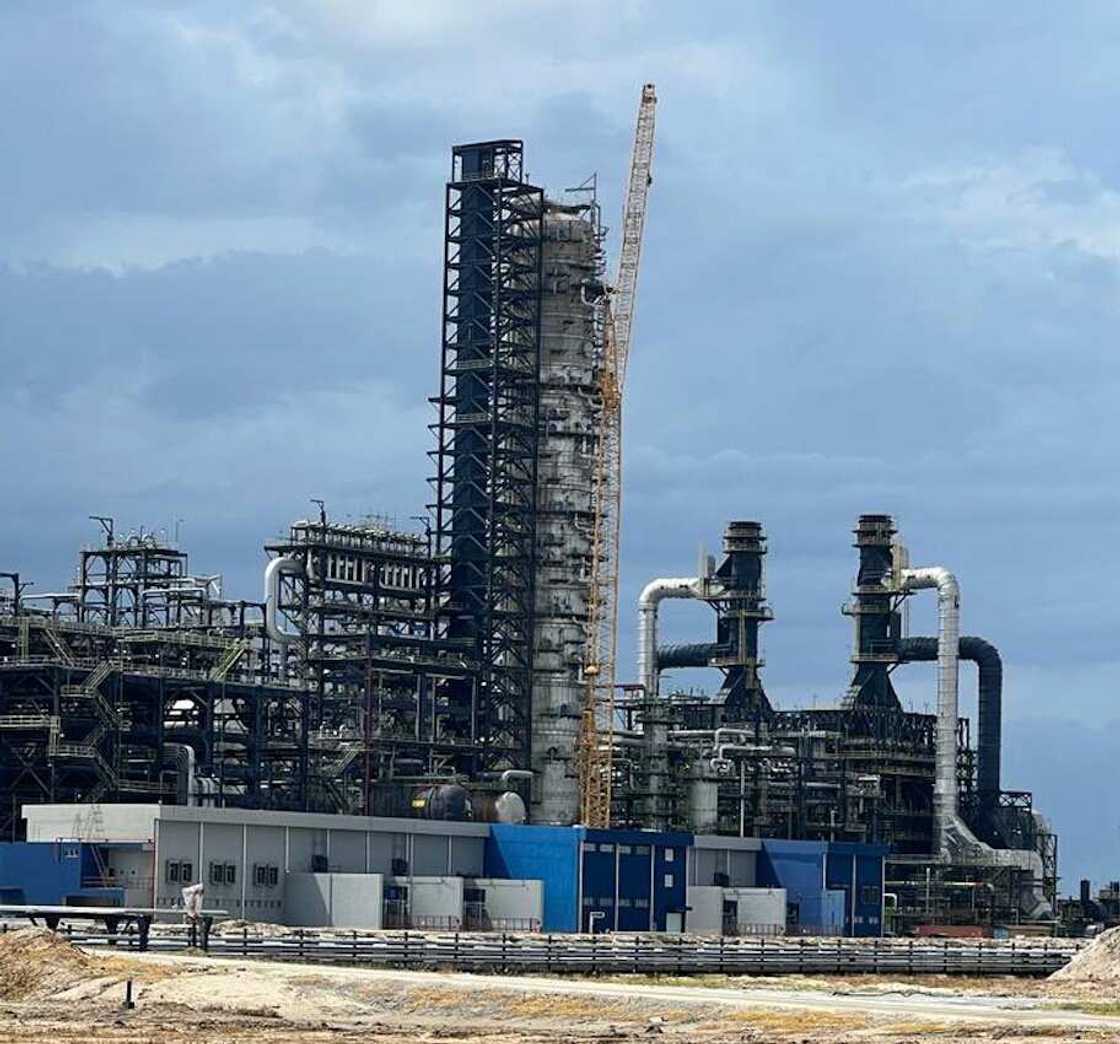Aliko Dangote Repays 70% of Bank Loan Used in Constructing Refinery, CBN Announces Remaining Balance
- The CBN has revealed that Aliko Dangote, President of Dangote Group, has repaid 70% of the commercial loans taken to build his refinery
- The loans were obtained from banks in Nigerian and foreign countries for the construction of the Dangote Refinery
- President Muhammadu Buhari inaugurated Dangote Refinery 10 years after the conception
PAY ATTENTION: Click “See First” under the “Following” tab to see Legit.ng News on your Facebook News Feed!
The Central Bank of Nigeria (CBN) announced that Aliko Dangote, the President of the Dangote Group, has successfully repaid 70% of the commercial loans obtained for constructing the Dangote Refinery.
The revelation was made by Godwin Emefiele, the Governor of the CBN, during the grand launch of the refinery in Lagos, on Monday, May 22, 2023.

Source: Twitter
Emefiele, in his speech, disclosed that the CBN had collaborated with Dangote Group by providing a loan facility of N125 billion in domestic currency.
He also noted CBN provided foreign currencies required to procure the refinery's plants and machinery.
PAY ATTENTION: Сheck out news that is picked exactly for YOU ➡️ find the “Recommended for you” block on the home page and enjoy!
Loans for the refinery
Emefiele revealed additional information that Dangote had obtained a $9 billion loan from banks to fund the refinery project.
He commended Dangote's remarkable creditworthiness and the efficient management of his company for successfully reducing the loan amount to just $2.7 billion, representing over 70% repayment.
Emefiele's words:
"In September 2013, when Aliko Dangote decided to embark on this project, it was estimated to cost $9 billion.
"However, due to various factors, the project was completed at a total cost of $18.5 billion.
"The Dangote Group contributed 50% equity investment, and the remaining 50% was financed through debt provided by Nigerian banks."
"The commercial loan component of the project was predominantly financed by domestic banks, with the balance sourced from foreign banks.
"The CBN also partnered with Dangote by providing over N125 billion to cover the venture's domestic currency requirements, while ensuring the availability of foreign exchange to pay for equipment, plant, and machinery."
"The repayment progress has been remarkable, as the total outstanding loans have reduced from $9 billion at the beginning of the project to $2.7 billion today."
Expert speaks on the refinery
Speaking on the refinery, Paul Alaje the Senior Economist with SPM Professionals said:
"Dangote Refinery is a game changer. The refinery will save us, in terms of forex, at least $23 to $25 billion. That is why each time the Central Bank of Nigeria says foreign reserves are depleting, it is because when we sell our oil, which gives us dollars, we use it to again import petrol and pay for subsidies.
"The Dangote Refinery will help more industries grow around it and create more jobs. The refinery will also help us improve our current account in international trade.
"As we speak, over 80% of our foreign investment has reduced. But Dangote Refinery will change all that as it is the foundation of energy in Africa."
Dangote speaks on benefits of his refinery to Nigeria's economy
Meanwhile, in another report, Aliko Dangote spoke on the positive impact of his new oil refinery on Nigeria's economy.
The refinery, located in Lagos, is one of the largest in the world and is expected to be launched by President Muhammadu Buhari.
Some of the benefits expected from the refinery include export savings in manufacturing plastics and textiles.
Source: Legit.ng


